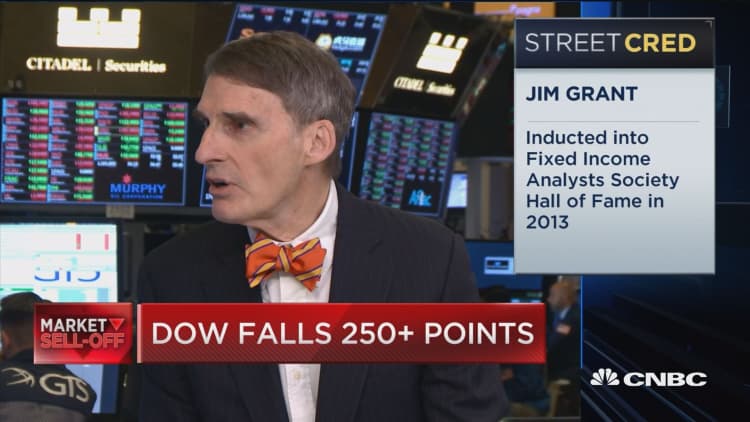
The jump in interest rates on Thursday may be just the beginning, Jim Grant, editor of a closely followed market newsletter, told CNBC.
The yield on the benchmark 10-year Treasury reached its highest level since 2011 early Thursday morning, breaking above 3.2 percent.
"It may just be … that the great bond bull market that began in 1981 ended in July of 2016," Grant said on "Closing Bell" Thursday.
In July 2016, the 10-year yield hit 1.375 percent.
If there is, in fact, a bond bear market underway, it would be a rather long process, because interest rates tend to trend over generation-length cycles, he explained.
"It might be that we are in the early stages of a persistent rise in rates," said Grant, editor and founder of Grant's Interest Rate Observer.
As of the latest reading at 4:40 pm E.T., the 10-year Treasury rate was at 3.185 percent. Meanwhile, the yield, which on Thursday hit its highest level since October 2014, was up at 3.344 percent.
Bond yields move inversely to prices.
The moves rattled the stock market on Thursday. The Dow Jones Industrial Average dropped 356 points at its lows of the day before closing down 200.91 points.
Grant noted that during the last bear market of consequence, which began in 1946, it took 10 years for yields to rise 1 percent.
"The tempo of this bear market, if indeed it is a secular bear market, is much faster," he said.
Grant, a frequent critic of the Federal Reserve, blamed central banks for a "huge distortion" of interest rates because they pushed them down for the better part of 10 years.
He thinks that will have consequences for the economy because people have borrowed at false prices.
"We are all, to a degree, living in a kind of investment hall of mirrors because the information conveyed by these rates is artificial information," he said.


